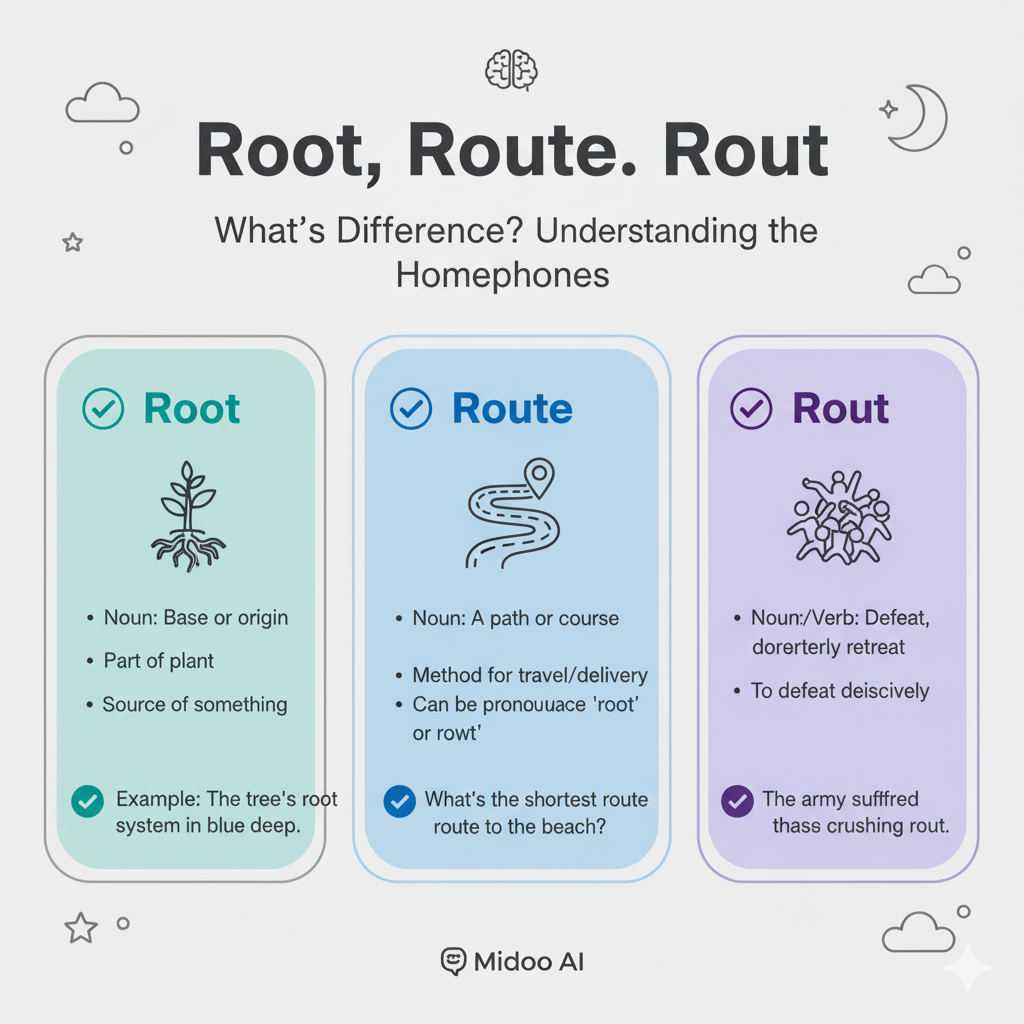Root vs. Route vs. Rout: How to Use These Confusing Words

English is full of tricky word pairs—and sometimes, even trios.
Many learners at Midoo AI get confused by the words “root,” “route,” and “rout” because they sound similar but mean very different things.
Don’t worry—this guide will break them down simply, with examples to help you remember.
Root – The Base or Origin
Root is usually a noun. It means the part of a plant that grows underground, or the origin or base of something. It can also be used as a verb meaning to cheer or support.
Examples:
- The tree’s roots are deep in the ground.
- Kindness is at the root of her actions.
- We studied the root of the problem.
- He pulled the weeds out by the roots.
- I’ll be rooting for you during the game.
Tip: Think of root as something deep or supportive — either underground or emotionally supportive.
Route – A Path or Way
Route is usually a noun. It means a path, road, or way to get from one place to another.
In American English, it’s often pronounced like “root” or “rowt” (both are accepted).
Examples:
- We took the scenic route home.
- This is the fastest route to the airport.
- The driver changed the delivery route.
- They planned their hiking route carefully.
- What’s the safest route through the mountains?
Tip: Think of route as a road or path—a way to go somewhere.
Rout – A Complete Defeat
Rout is usually a noun or verb. It means a complete defeat, especially in battle or competition, or to defeat someone completely.
Examples:
- Their team suffered a rout in the final match.
- The army routed the enemy forces.
- It was a total rout—10 to 0.
- The champion routed all his opponents.
- The company routed its competition in the market.
Tip: Rout is about winning big or crushing the opponent.
Quick Way to Remember
- Root → underground base 🌱
- Route → path or road 🛣️
- Rout → complete defeat 🏁
FAQ
Q: Are “route” and “root” pronounced the same?
A: In American English, yes—both /ruːt/ are common, though “route” can also be pronounced /raʊt/. In British English, “route” is usually /ruːt/.
Q: Can “root” also mean to cheer?
A: Yes! “To root for someone” means to support or cheer for them.
Q: Is “rout” common in everyday speech?
A: Not very. It’s more common in sports or military contexts, meaning a big defeat.
Q: What’s an easy trick to remember them?
A: Think root = base, route = road, rout = ruin (defeat) — they all start with “r” but end differently to show their meaning.